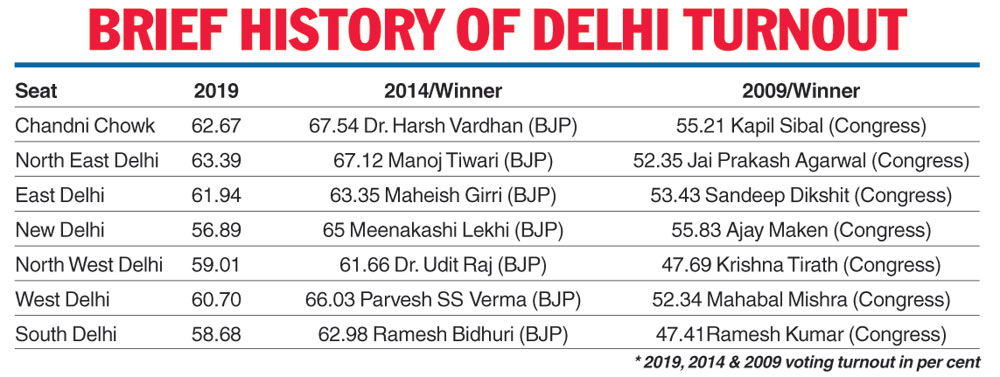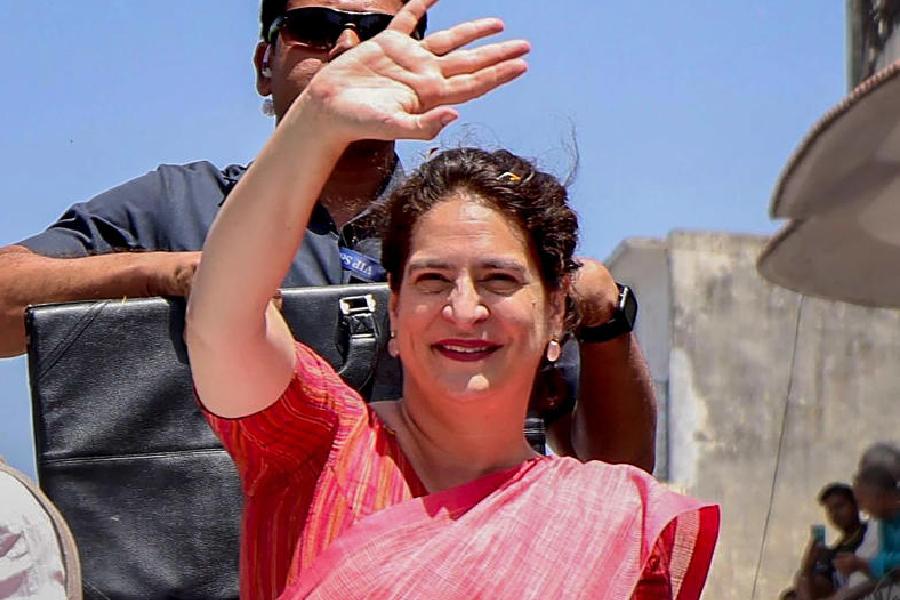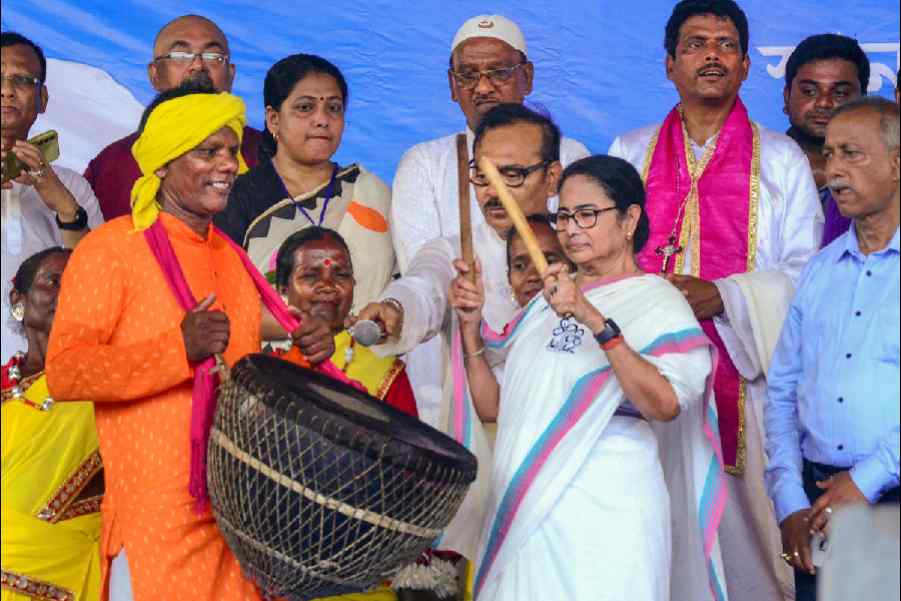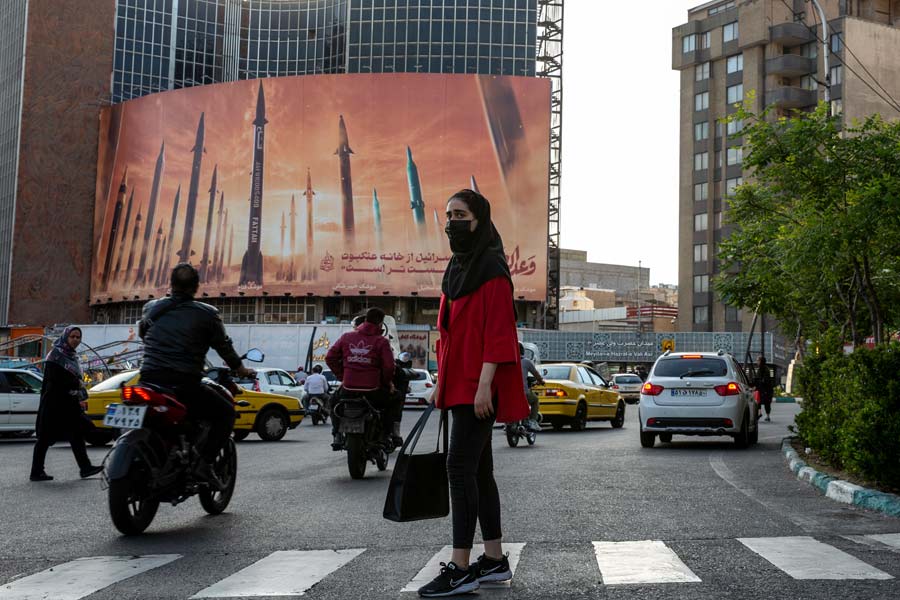The fall in Delhi’s voter turnout from 65.1 per cent in 2014 to 60.34 per cent on Sunday has left parties foxed.
A high turnout is usually seen as a gain for the Opposition. In the 2004 elections, however, the then Opposition Congress garnered 54.8 per cent vote share on a turnout of 47.09 per cent.
Polling officials have attributed the fall to the date of polling — a month later than the previous Lok Sabha polls — which saw higher temperatures, summer holidays, and so on.
Both AAP and the Congress are worried whether the fall is from fasting Muslim voters being unable to withstand the heat in queues, as the Muslim-dominated Okhla segment polled 54.82 per cent, below the East Delhi constituency average of 61.93 per cent. However, New Delhi constituency, with fewer Muslim voters, saw the lowest turnout at 56.91 per cent. Delhi cantonment segment of New Delhi saw the lowest turnout in the city at 42.13 per cent.
A BJP source said the fall was in both AAP and BJP voters. The BJP source attributed it to “disinterest among young voters of AAP”.

The Telegraph
An AAP leader also said that “issues on TV do not connect with the voter”.
The Congress’s Chandni Chowk candidate J.P. Aggarwal said: “These are voters who came out for Modi in 2014 but hate him now for making false promises.”
However, in the absence of any unifying theory on the fall, parties are left trying to make sense of the turnout figures.
Sources in all parties give AAP an edge in North West Delhi, the Congress in New Delhi, and the BJP in West Delhi. On the other four seats, the three-cornered fight makes it hard to estimate a winner in an election that Delhi wasn’t as interested in as 2014.
“This is a small drop and it won’t make a difference to the result,” said professor Abhay Dubey of the Centre for Study of Developing Societies. “What it shows is that there is no wave either for or against anyone. Waves, either way, tend to increase turnout. The workers were not enthusiastic enough to bring voters to the booths.”










